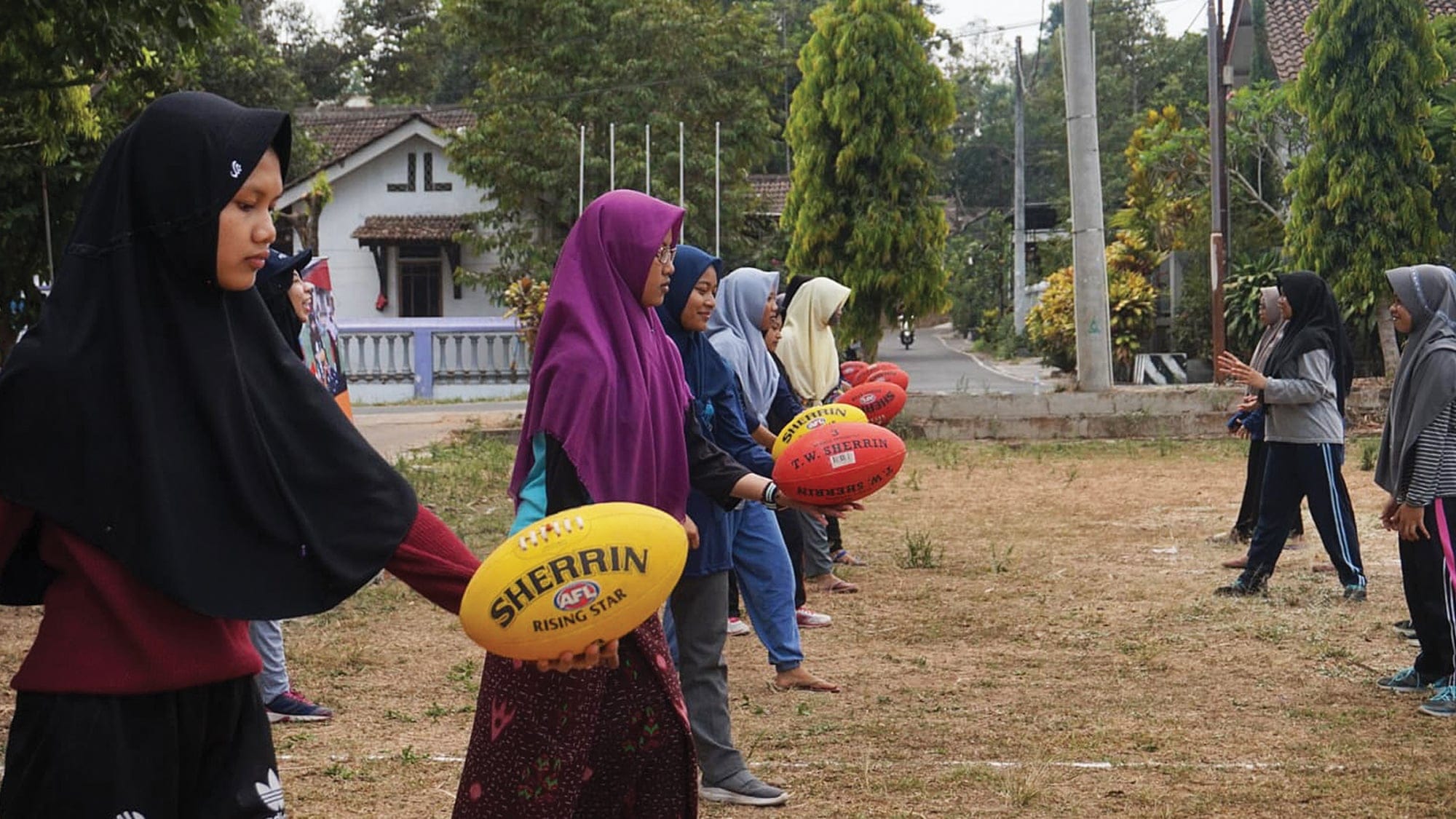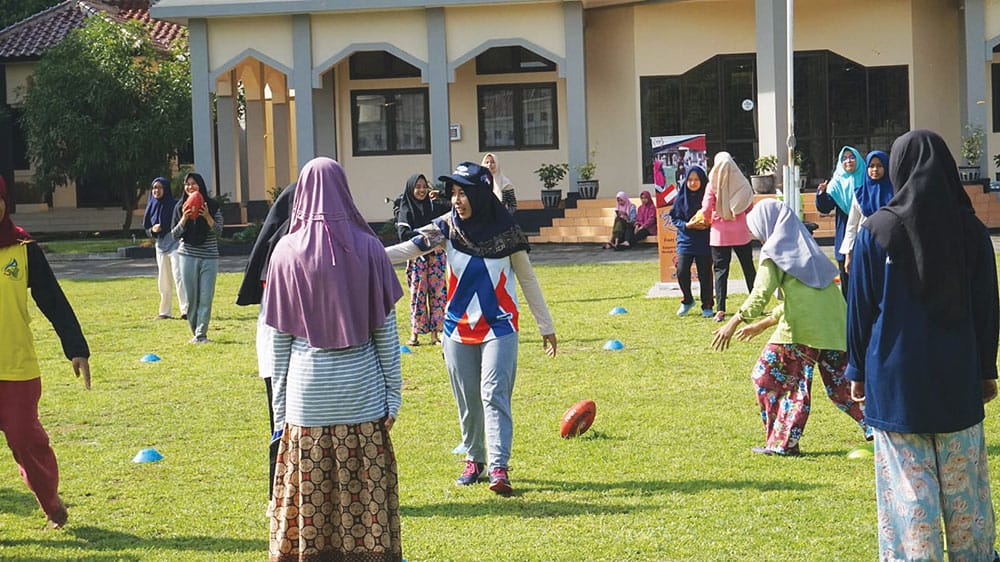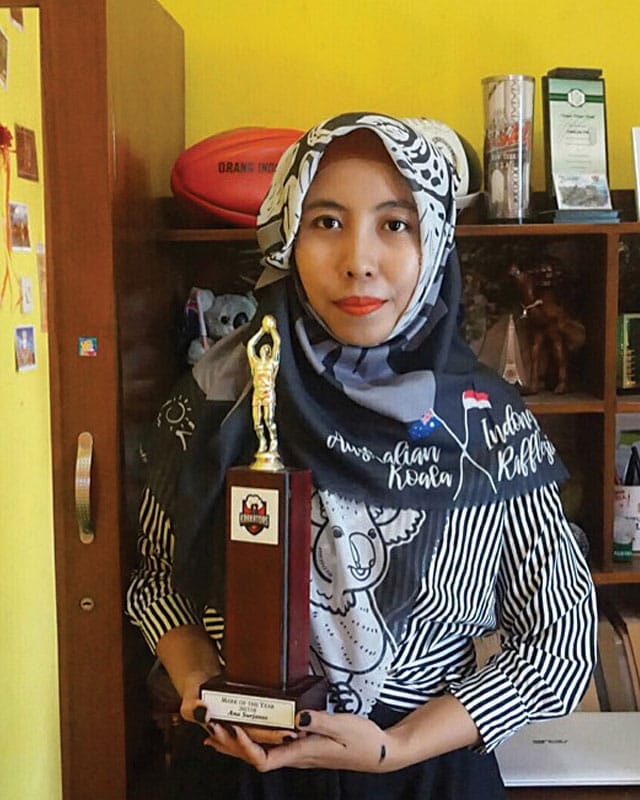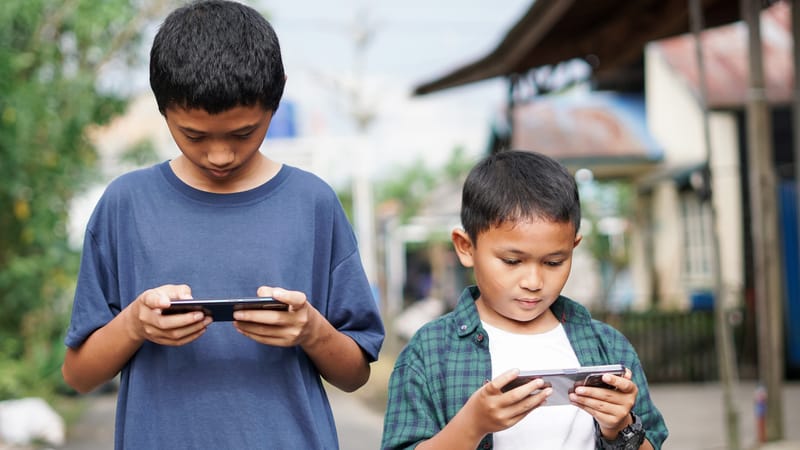
Ana Surjanto had never heard of the Australian Football League (AFL) before she landed in Australia from Indonesia in 2016 to study her master’s at Monash University. She wasn’t even particularly interested in sport. But she was soon intrigued by the strange-shaped ball and the game that “made Melburnians go crazy”.
A friend from Monash told her about the Krakatoas, a football side made up of Indonesians and Australians. And, true to her nature of embracing new experiences, she joined the team. Her coach was encouraging from day one, ”even when I couldn’t kick”, Surjanto says. As her skills developed, so did her confidence. She almost burst with excitement when she kicked her first goal. She was hooked.
When Surjanto returned to Indonesia in 2018, after completing her Master of Teaching English to Speakers of Other Languages (TESOL), she took footy with her.
"Aussie rules is not just for sport, but for inclusion and cultural integration."
Today, Surjanto is Asia’s first female AFL-accredited coach. Before the COVID-19 restrictions, she was running footy clinics for 100 girls at the State Institute of Islamic Studies (IAIN) in Salatiga, Central Java, where she lectures. The clinics have had a markedly positive effect on her young charges, she says – and not just in improved sporting prowess.
“In the beginning they were shy and not confident,” she says. “They were living together in dormitories, but they didn’t really know each other. But through training sessions, they support each other, applaud each other and have fun. They are better friends.”
These interpersonal skills in teamwork and collaboration, she says, will be of benefit not just in sport, but also in study – and in future work and life.
“My aim is to empower women in my community,” she says. “And being happy and cooperating with their friends at training is about empowerment.”
Breaking down stereotypes
Surjanto is also developing intercultural competency and community by involving in the clinics Australians from the AFL Indonesia and Australia-Indonesia Youth Association (AIYA).
“The girls are so excited to directly interact with Australians,” she says. “They can practise their English, and learning a language is a link across cultures. So, I can use footy to teach English and to develop intercultural understanding.”


Through that understanding, stereotypes are broken down and relationships are built across cultures, Surjanto says. “So, Aussie rules is not just for sport, but for inclusion and cultural integration,” she says.
So inspired is Surjanto by the transformative power of sport in women’s empowerment and social inclusion, she’s now planning a PhD on Islam, gender and sport, looking at questions that arise from Muslim women participating in Aussie rules football. And she plans to return to Monash to undertake her studies. “Monash has stolen my heart,” she says.
Along with footy, the scholarship student threw herself into extracurricular activities at Monash. She became an education student ambassador, was a mentee then a mentor, and she was one of three international student leaders, a role that included public speaking.
Her Monash experience gave her a community, confidence and a voice. “It gave me additional skills to strengthen myself,” she says. “It made me who I am.”
Following her dreams
In 2020, while socially distancing back in her home town of Boyolali, Surjanto created a website, Santri Oz – a collection of seminars, footy clinics, activities and stories to inspire women. It also features a book she published before she came to Australia – a fictionalised version of her own life – “about a girl from a small village who followed her dreams”.
Both through her writing and actions, she hopes to inspire other girls into sport and education. “By seeing what I have done, they can look to the future and understand there are opportunities open to them,” she says.
Surjanto’s novel ends with the girl getting a bachelor’s degree, but now, with her experience and her eye on a future in policy or even government, she agrees there may need to be a sequel. “Two or three more books,” she says.
Support for Monash alumni in Indonesia
Your Indonesia-based International Alumni Engagement Manager, Gusti Reynaldie, is available to tell you about events and help introduce you to and set up networking opportunities with other alumni, corporate partners and recruiters.





